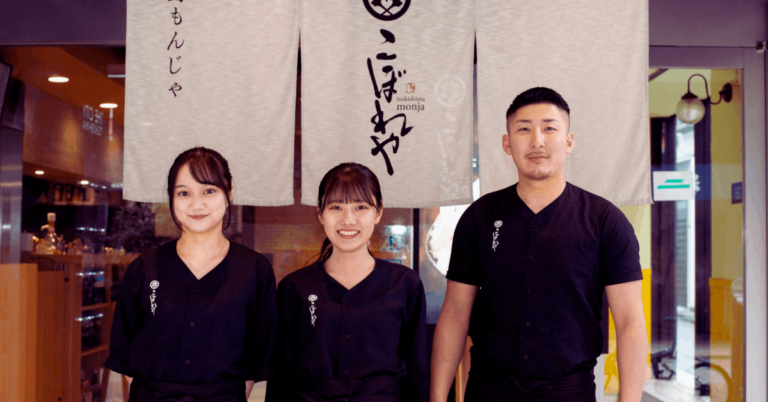Hotel jobs in Japan provide strong opportunities for those skilled in connecting with international guests and using language abilities in a professional environment.
This guide focuses on the essential steps for entering Japan’s hotel industry, providing clear information to job seekers aiming to join Japan’s fast-growing hospitality sector.
This content serves those specifically interested in hotel careers in Japan, offering streamlined details for building a career in Japanese hotels.
Tourism Boom Driving Demand for Hotel Jobs
Japan’s tourism industry has expanded rapidly in recent years, pushing hotel chains and private developers to create more accommodation options.
This growth has led to a steady increase in hotel job opportunities across the country, especially in areas with high tourist activity.
Key Tourism Hubs in Japan
Major cities like Tokyo, Kyoto, Osaka, Yokohama, and Chiba are prime tourist destinations. In 2018 alone, Tokyo saw over 14 million tourists.
These cities host a variety of hotels, from luxury and business hotels to capsule accommodations, which generate a range of job opportunities for local and international candidates.
Importance of Hotel Jobs in Japan
Hotel jobs in Japan significantly contribute to the economy, providing employment opportunities in a thriving sector.
These roles are crucial in supporting tourism by ensuring quality service for millions of visitors. In key areas like Tokyo, Kyoto, and Osaka, hotel jobs boost local economies and foster regional development.
Hotel staff enjoy opportunities for cultural exchange and skill-building, benefiting both domestic and international employees.
Work Culture in Japanese Hotels
Working in Japanese hotels involves adapting to a culture rooted in traditional hospitality standards.
Teamwork, professionalism, and courtesy are essential in maintaining high service levels. Hotel staff are expected to uphold a strong work ethic, precision, and cooperation to deliver exceptional guest experiences.
These values define hotel work culture, making it essential for staff to align with Japan’s hospitality expectations.
Hotel Jobs in Japan: Key Opportunities and Requirements by Hotel Type
Japan’s expanding tourism industry supports a wide range of hotel types, each offering distinct job roles. Here’s a breakdown of hotel types and the specific hiring trends across Japan’s hotel sector:
1. Comfort Hotels
Western-style comfort hotels, often managed by global brands, cater to international guests with larger rooms and familiar amenities.
These hotels seek staff proficient in English to meet the needs of foreign clientele, offering promising job opportunities for English-speaking foreign workers aligned with global service standards.
2. Business Hotels
Business hotels primarily target business travelers and offer economical lodging with essential amenities, often around 10,000-20,000 yen per night for two.
These hotels favor Japanese-speaking staff due to their focus on domestic clients. They emphasize roles that prioritize efficiency and straightforward service.
3. Ryokan
Traditional inns known as Ryokans offer an immersive Japanese experience, attracting guests interested in local architecture and traditional cuisine.
Positioned mainly in historical areas like Kyoto and Nara, Ryokans prefer Japanese-speaking staff who can enhance the cultural experience for local and domestic visitors.
4. Minshuku
Smaller, family-operated inns, Minshukus, are found in popular resort areas and provide affordable accommodations (5,000-8,000 yen per person).
Job opportunities here typically require Japanese language skills to serve local guests, with staff often engaged in multiple roles to maintain the personalized, home-like atmosphere.
5. Luxury Hotels
Luxury hotels in major cities, including high-profile brands like Marriott, Hilton, and Hyatt, offer premium services for high-end guests.
These hotels actively hire foreign staff fluent in English to accommodate an international clientele, especially for guest-facing roles in concierge and reception.
6. Ski Resorts
Located in top ski areas, ski resorts cater to both local and international visitors during peak seasons.
Seasonal positions are often open to English-speaking foreign staff to assist international guests, especially in roles requiring communication with tourists during winter and summer.
7. Shukubo (Temple Lodging)
Shukubo accommodations, found in Buddhist temples like those on Mount Koya, emphasize cultural experiences, inviting guests to engage in traditional practices.
Roles here prioritize Japanese-speaking staff to maintain cultural familiarity, with limited openings for foreign staff who have strong cultural knowledge.
8. Love Hotels
Focused on a niche market, love hotels provide private rooms for couples, typically in areas like Tokyo’s Shibuya.
These establishments generally do not require English-speaking staff as they serve a local clientele.
9. Capsule Hotels
Budget-friendly capsule hotels offer compact sleeping pods and attract local business travelers in cities like Tokyo and Osaka.
Staff roles emphasize Japanese proficiency due to the mostly domestic clientele, often focused on efficient check-in and check-out processes.
Hotel Job Opportunities for Foreign Workers in Japan
Japan’s hotel industry actively seeks foreign workers for various roles, especially in comfort hotels, ski resorts, and luxury hotels, where English-speaking staff help meet the needs of international guests.
On the other hand, traditional inns like Ryokans, Minshukus, and Shukubos prefer Japanese-speaking staff to maintain cultural authenticity in their service.
Types of Hotel Jobs in Japan
Japan’s hotel sector offers a range of roles tailored to different types of establishments, from luxury hotels to traditional inns, each requiring specific skills. Here’s a concise guide to key job areas for those looking to work in Japanese hotels:
1. Management Roles
- General Manager: Oversees hotel operations, ensuring efficiency, staff management, and financial success. This role involves setting financial targets, maintaining service standards, and controlling costs.
- Vice Director: Common in four-star hotels and above, the Vice Director manages guest relations, resolves guest issues, and supports the General Manager by coordinating team activities.
2. Reception
- Receptionist / Front Office Clerk: Acts as the main point of contact for guests, handling check-ins, providing information, and managing reservations. This role demands strong communication and language skills.
- Back Office Clerk: Manages behind-the-scenes administrative tasks, including human resources and financial matters critical to hotel operations.
- Concierge: Primarily found in luxury hotels, Concierges handle guest arrivals, assist with luggage, and coordinate parking and other guest services.
- Bellhop:Assists guests with luggage transport to rooms, commonly seen in luxury hotels, comfort hotels, and ski resorts. Physical stamina is essential for this role.
3. Housekeeping
- Room Attendant: Responsible for room cleanliness, linen changes, and ensuring rooms are ready for new guests. This role is central to maintaining the hotel’s hygiene standards.
- Laundry Officer: Manages laundry services, ensuring high standards in linen and guest clothing cleanliness, which is crucial for guest satisfaction.
4. Food and Beverage
- Food & Beverage Manager: Oversees all catering activities, including budgeting, cost control, and upholding food and beverage quality. Ensuring hygiene and proper storage are essential parts of this role.
- Executive Chef: Manages the kitchen, coordinates the kitchen team, and creates menus to provide a high standard of cuisine, vital in both luxury and high-demand hotel environments.
- Waitstaff: Serves meals, manages guest requests, and ensures a seamless dining experience.
- Sommelier: In luxury hotels, the Sommelier selects and recommends wines based on quality and taste, enhancing the dining experience.
- Bartender: Prepares and serves drinks in hotel and nightclub bars, emphasizing presentation and guest interaction.
General Skills Needed for Hotel Jobs
To thrive in Japan’s hotel industry, candidates need a strong skill set tailored to hospitality roles.
The following skills are essential for securing and excelling in hotel jobs in Japan:
- Computer Skills: Basic computer skills are essential. Receptionists manage check-ins and check-outs, and managers handle inventory. Proficiency improves efficiency across roles.
- Japanese Language Proficiency: Speaking Japanese enhances guest experience and shows respect for local customs, making it highly valued in hotel jobs in Japan.
- English and Other Language Skills: Fluency in English is crucial for international guests. Additional languages like Chinese or Korean are a plus, helping serve a diverse clientele.
- Communication Skills: Effective communication directly impacts guest satisfaction, from addressing concerns to providing information clearly.
- Teamwork Skills: Hotel roles rely on collaboration. Departments work together to ensure smooth operations and guest satisfaction.
- Time Management Skills: Timeliness is vital in hotels. Staff follow specific schedules to ensure efficient service across all departments.
- Problem-Solving Skills: Quick, adaptive problem-solving maintains a positive guest experience and supports the hotel’s reputation.
- Additional Skills: Empathy, attention to detail, and resilience under pressure enhance guest experiences and create a welcoming environment.
Salaries for Hotel Jobs in Japan
Salary expectations vary significantly across roles for individuals considering a career in Japan’s hotel industry, influenced by experience, education, Japanese language skills, and specific job types. Here’s a breakdown of typical salaries for key hotel positions in Japan:
Hotel General Manager
- Less than 2 years: 6 million yen annually
- 5 years: 8 million yen annually
- 5-10 years: 11-12 million yen annually
- 10+ years: 16-17 million yen annually
Receptionist
- Less than 2 years: 1-2 million yen annually
- 5 years: 2.3 million yen annually
- 5-10 years: 3 million yen annually
- 10+ years: 4.3 million yen annually
Maid or Housekeeper
Salaries range from 1.6 to 3.4 million yen per year. Maids in luxury hotels or resort areas tend to earn more than those in standard business hotels near transit hubs.
Executive Chef
- Less than 2 years: 2-3 million yen annually
- 5 years: 3.4 million yen annually
- 5-10 years: 4-5 million yen annually
- 10+ years: 6-7 million yen annually
Bartender
- Less than 2 years: 1.4 million yen annually
- 5 years: 2 million yen annually
- 5-10 years: 2.7 million yen annually
- 10+ years: 4 million yen annually
Where to Find Hotel Jobs in Japan
Finding hotel jobs in Japan involves several straightforward methods that streamline the process.
Major online job platforms provide listings specifically for hotel positions, making locating opportunities for both Japanese and English speakers easier. Here are key platforms for securing hotel jobs across Japan:
- LinkedIn (Hotel Jobs in Japan)
- Indeed (Hotel Jobs in Japan)
- Glassdoor (Hotel Jobs in Japan)
- Rikunabi (Hotel Jobs in Japan)
- JobsinJapan (Hotel Jobs)
- GaijinPot (Hotel Jobs)
- Daijob (Hotel Jobs)
In Tokyo, Hilton and Palace Hotel often have openings, especially for part-time roles. Hotels in popular tourist destinations like Niseko and Okinawa, including HYATT, regularly offer positions for seasonal or permanent work outside Tokyo.
Direct Applications on Hotel Websites
Applying directly to hotel websites is another efficient way to access job opportunities. Many hotel sites have a “Careers” or “Join Our Team” section for job listings. Some hotels also accept spontaneous applications, improving the chances of securing a role when a position becomes available.
Recruitment Agencies for Hotel Careers
Recruitment agencies in Japan offer valuable support for those seeking management roles or specialized hotel positions. Both full-time and part-time roles are accessible through reputable agencies like:
- Michael Page Japan
- Optia Partners
- Core Group
- Robert Walters Japan
- Hay
To start your application, click this link.
Conclusion
Hotel jobs in Japan offer a solid career path in a thriving industry. Positions range across departments, allowing growth, especially for those with language skills and customer service expertise.
Benefits include competitive pay and professional development, making it a viable choice for long-term careers. Start a role in Japan’s hospitality sector and uphold high standards of service.











